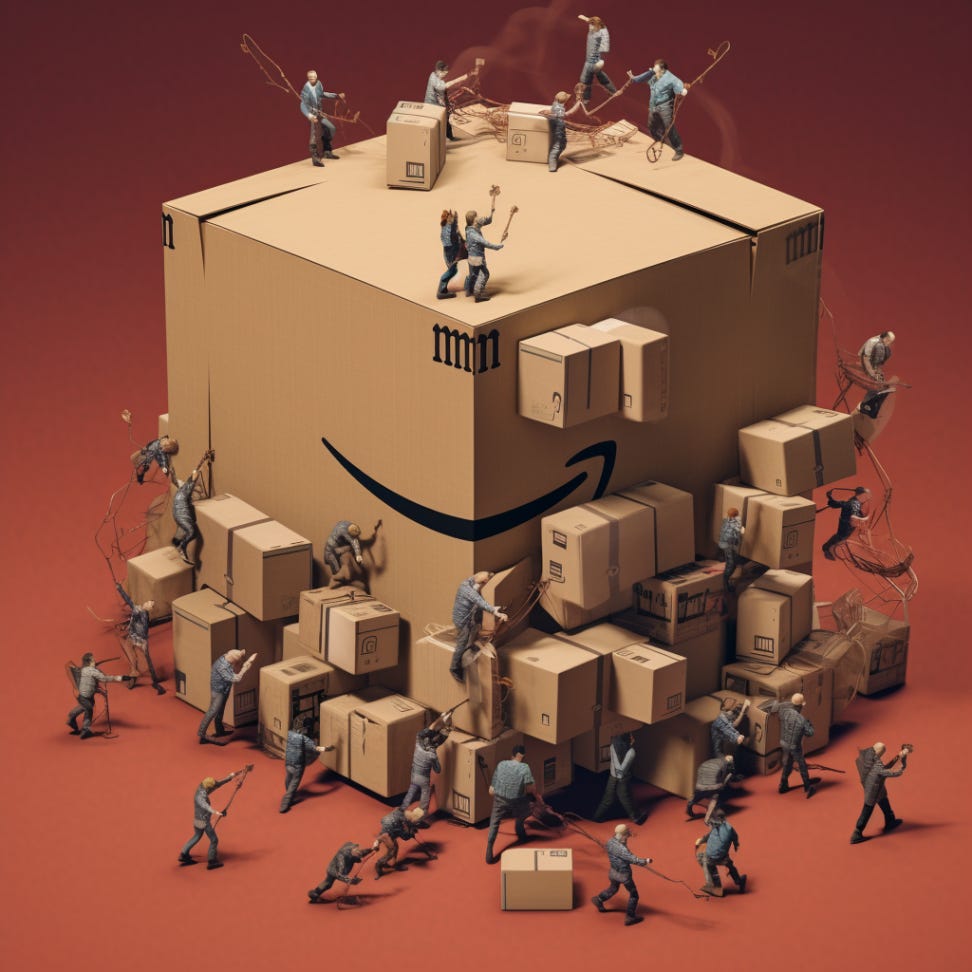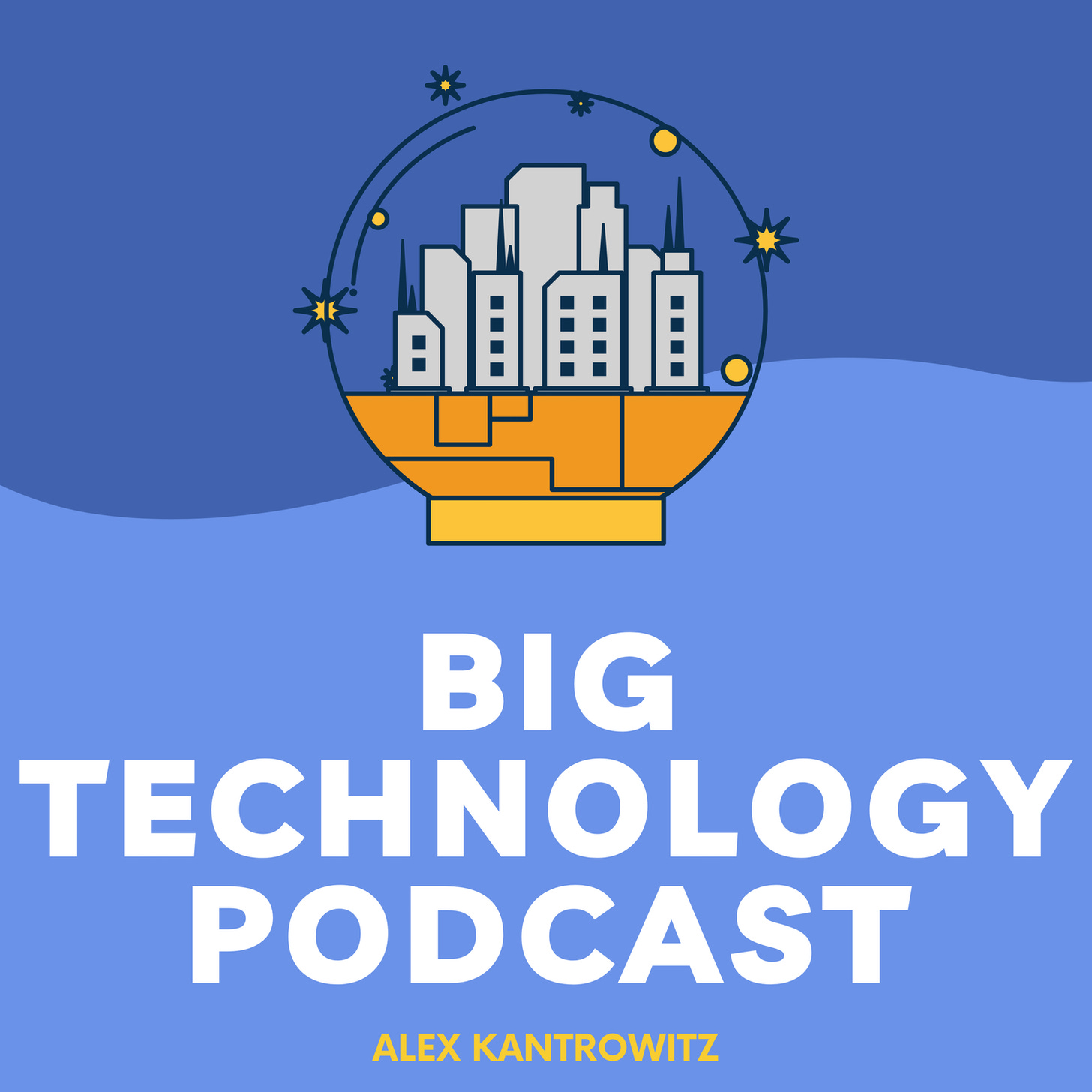|
Two Years In, Amazon CEO Andy Jassy Faces Challenges At Every Turn
Amazon once seemed invincible, but the company is navigating a bumpy, post-pandemic road with a new CEO at the helm.
Almost immediately after Jeff Bezos handed Amazon to Andy Jassy in July 2021, the trouble began. The company had been soaring post-pandemic, bolstered by overwhelming interest in ecommerce and the cloud, but a return to in-person life and a broad tech drawback changed it all fast. As Jassy took over, Amazon’s share price plunged, customers pulled back, easy deals became hard, and hard deals fell apart. With Bezos living the good life, his anointed CEO dealt with the fallout.
Next month, Jassy will reach the two year point in his bumpy run as CEO. He’s helped bring some stability to the company, but his record’s been marked by approximately 27,000 layoffs, a rush toward retail efficiency, slowing cloud growth, and questions about the company’s focus. Amazon stock is up 48% this year, but down approximately 30% since Jassy took over. And if his first two years were a crucible, the next will be defining, as he’ll face mounting challenges while hoping Bezos doesn’t pull an Iger.
Here’s where things stand inside Jassy’s Amazon at his two year mark:
Retail: New Efficiency and New Competition
After Amazon’s retail business grew 39% in 2020, it decided to double its fulfillment footprint in 24 months. The aim was to add capacity quickly in case pandemic buying habits kept up. When that hope didn’t materialize, Amazon was stuck with excess space and costs. “We knew we might be overbuilding,” Jassy admitted late last year, but the company proceeded nonetheless. Rising inflation and an uncertain economy further complicated the decision, as people spent less freely on the site. Interest rate increases then drove the market to demand maximum efficiency, leaving Amazon’s entire retail operation misaligned.
Responding to Wall Street, Jassy conducted deep layoffs and looked for efficiency across the business. Amazon soon made plans to sublease its excess warehouse space and sought to use its existing space better. It shifted from a national fulfillment model to a regional model, and many of those regions are now largely self-sufficient, capable of shipping you whatever you need without relying on another network of warehouses. The company also changed its website to help the efficiency push. “The first few non-sponsored results are going to be products already available in the local distribution center,” Bernstein analyst Mark Shmulik told me, sounding impressed with the changes. ”They're actually tying inventory to how they're displaying the results.”
With retail stabilizing, Amazon must now fend off new competitors capitalizing on the bargain shopping trend. Notably, Chinese retailers Temu and Shein are continuing to gain adoption in the U.S., with Temu alone reaching 74.1 million downloads, per Apptopia. Not all Temu users are active, but usage is soaring. These challengers are effectively bringing many of the made-in-China brands on Amazon directly to consumers at a lower price, though with worrying labor practices. To avoid losing share, Amazon will have to respond. In retail, there’s no such thing as a break.
More on Big Technology Podcast: NVIDIA Takes Off, Temu + Shein Deep Dive on Apple Podcasts, Spotify, or your podcast app of choice.
Amazon Web Services: Resetting expectations in a different market
In the zero interest rate era, companies would spend wildly on cloud services without much thought. “It wasn't just capacity,” said Shmulik. “It was value added services like ‘Oh, I want the platinum SLA.’” Amazon Web Services’ customers believed the good times would roll on, that growth was inevitable, and that extra space or higher levels of services were worth the cost. No longer. As interest rates rose, companies looked for places to cut, and CFOs began scrutinizing the fancier AWS packages. In many cases, they limited plans to increase spending or even cut back.
Alongside a pullback from bigger cloud customers, Amazon’s struggled to keep growing with startup money as VC funding grew scarce. “It's still a bit dry out there, aside from some pockets of AI investments,” said Shmulik. “These digitally native tech startups are typically born on AWS so you're not seeing those dollars flowing.”
AWS growth slowed to 16% in this year’s first quarter, down from 20% last year. And it may slow further before it picks up. The company’s cloud services division will also have to work to keep its shine as competitors including Microsoft and Google rush to support AI. AWS did counter in April with new tools to build generative AI applications in AWS. This fight is in its in infancy though, and how Amazon fares could meaningfully influence the company’s trajectory.
Work at Amazon or its fellow big tech companies and have a tip? Find me on Signal at 516-695-8680.
Experimental Products: AI and Focus
Jeff Bezos had plenty of executives to pick from when considering his eventual replacement, and landed on Jassy. By selecting the technologist running AWS, instead of someone with deep retail experience, Bezos was making a bet on the future. Jassy had been at the helm of Amazon’s most successful expansion (the AWS building in Seattle is called ‘re:invent’) and was best positioned to lead the company through necessary transformations in the future.
Amazon under Jassy has, however, been notably absent in the race to release new consumer, generative AI applications. Currently, there’s a document floating around the company with more than 60 employee-sourced ideas for ChatGPT-like uses. But Amazon is clearly behind, a surprise given its lead in voice computing with Alexa.
Amazon’s delay on ChatGPT-style tech underscores Jassy’s challenge. To reward Bezos’s faith in him, he’ll have to push forward with new experiments at a time when market is punishing excess spending. The temptation, currently, is to shut down experimental projects vs. spin them up. And while focus is necessary in today’s Amazon, being timid to push ahead could hold the company back in the long run.
We're not mad at coffee, just disappointed. (sponsored)
MUD\WTR is a coffee alternative with functional mushrooms and ayurvedic herbs. With 1/7th the caffeine as a cup of coffee, you get sustained energy and focus without the jitters or 2 p.m. crash of coffee.
Your morning routine sets the tone for your entire day and MUD\WTR supports a healthy mind, through healthy habits.
With cacao and masala chai, you get the habit of coffee and functional mushrooms like the natural nootropic lion’s mane to promote focus throughout the day.
Whether you prefer it hot or iced, with cream or without, you can brew it the same as your coffee. And for an extra boost, try our MCT oil coconut creamer.
Enter code BIGTECH at checkout for a limited time 15% discount and a free frother at mudwtr.com/bigtech
What Else I’m Reading, Etc.
Kenyan tea farmers are destroying the machines sent to replace them [Semafor]
A European AI company raised €105 million within a month of forming [Techcrunch]
Platforms are fading, and charging for access like Reddit did is a last gasp [Garbage Day]
The great resignation is over [CNN]
Who could be the next boss at CNN [Washington Post]
Jack Dorsey gave his first interview since leaving Twitter [YouTube]
AI helped reunite the Beatles for “one final record” [BBC]
EU suggests breaking up Google in antitrust case [Reuters]
Silicon Valley warns of the looming AI “singularity” [New York Times]
A dispatch from the front lines in Ukraine [New Yorker]
Join Pinecone's AI Hackathon: Solve Real-world Problems, Learn, Innovate Together. [Pinecone] (sponsored)
See a story you like? Tweet it with “tip @bigtechnology” for consideration in this section.
Number Of The Week 1
45%
Percentage of S&P 500 gains driven by Ai through April, according to JP Morgan, via Bloomberg.
Number Of The Week 2
174,848
Number of Meta shares purchased by two ETFs managed by Cathie Wood. Meanwhile, UBS downgraded Apple stock placing its analyst ratings at a two-year low.
Quote Of The Week
Reddit has plugged its ears and refuses to listen to anybody but themselves. And I think there’s some very minor concessions that they can make to make people a lot happier.
Christian Selig, the creator of Apollo, a third-party app for Reddit, calling out the company for announcing its new API fee structure that effectively shuts down Reddit’s third-party app network.
Advertise with Big Technology?
Advertising with Big Technology gets your product, service, or cause in front of the tech world’s top decision-makers. To reach 130,000+ plugged-in tech insiders, reply to this email or write [email protected]
This Week On Big Technology Podcast: Will AI Save The World + Azure's Origins — With Bob Muglia
Bob Muglia is the former CEO of Snowflake, author of THE DATAPRENEURS: The Promise of AI and the Creators Building Our Future, and ex-head of Server and Tools at Microsoft. He joins Big Technology Podcast to discuss the latest in artificial intelligence, including Marc Andreessen's essay — Why AI Will Save The World — and the lessons in his book. We also go deep into the emergence of Azure at Microsoft, which he was present for, and how Satya Nadella was able to push it forward despite the cultural challenges.
You can listen on Apple, Spotify, or wherever you get your podcasts.
Thanks again for reading. Please share Big Technology if you like it!
Share
And hit that Like Button if you like newsletters with fast, convenient, and affordable delivery — Prime subscription not required.
My book Always Day One digs into the tech giants’ inner workings, focusing on automation and culture. I’d be thrilled if you’d give it a read. You can find it here.
Questions? Email me by responding to this email, or by writing [email protected]
News tips? Find me on Signal at 516-695-8680
My book Always Day One digs into the tech giants’ inner workings, focusing on automation and culture. I’d be thrilled if you’d give it a read. You can find it here.
Questions? Email me by responding to this email, or by writing [email protected]
News tips? Find me on Signal at 516-695-8680



